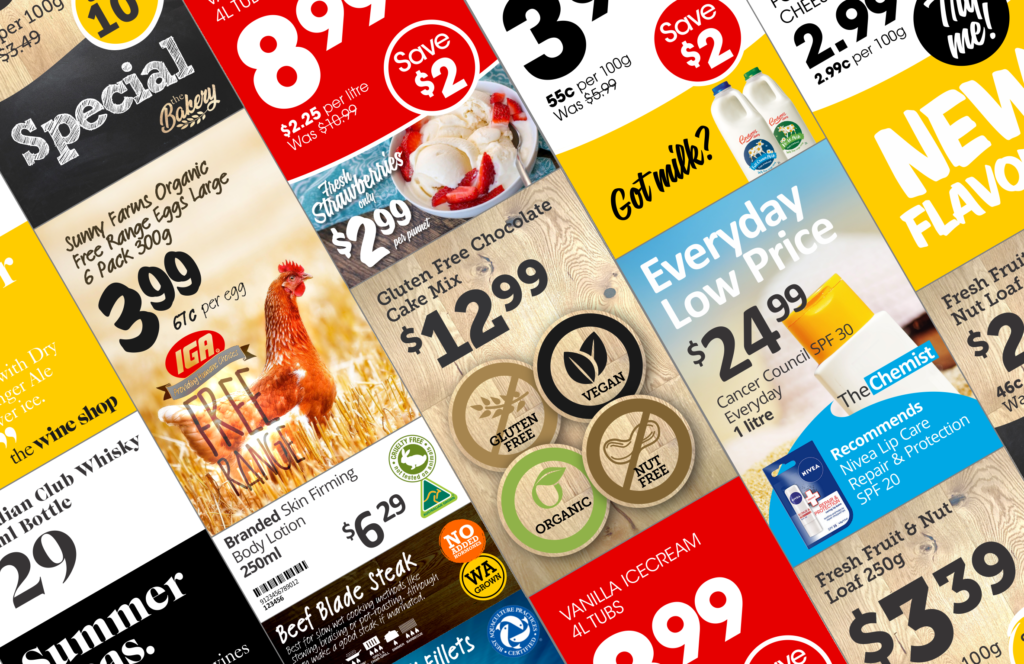In-store ticketing serves as a silent salesperson, guiding customers, answering their questions, and helping them discover new products. It removes decision-making barriers, highlights offers and promotions, and ultimately influences purchasing decisions. For brick-and-mortar retailers, ticketing is a powerful tool to compete with online retailers by offering unique experiences and tangible differences.
Why In-Store Ticketing Matters
With online retailers challenging traditional stores to remain competitive, a great in-store experience is essential. It builds customer loyalty and trust, ensuring that customers return rather than opting for the convenience and cost benefits of online shopping. Once a customer enters a store, there are five key areas where retailers can engage them:
-
Store design: Creating an appealing atmosphere.
-
Merchandising and pricing: Strategic product placement and pricing.
-
Customer service: Interaction with knowledgeable staff.
-
Digital experiences: Incorporating technology to enhance shopping.
-
In-store communication: Effective ticketing, shelf talkers, and labels.
The Power of Shelf Decisions
Studies show that a significant percentage of purchase decisions happen in-store, often at the shelf. For example:
-
POPAI Study (2014): 82% of shopping decisions are made in-store.
-
Global Insights: 30% of shoppers decide on brands in-store, and 10% buy a different brand than planned. These statistics highlight the importance of influencing decisions at the shelf to boost both individual product sales and overall basket sizes.
How Good Ticketing Drives Sales
In-store ticketing doesn’t bring customers to your store but significantly impacts their buying decisions once inside. Here’s how ticketing can increase sales:
1. Impulse Purchases
Customers love good deals. Clear, eye-catching promotional tickets trigger impulse buys. Key considerations include:
-
Making the offer value instantly understandable.
-
Highlighting savings without requiring mental calculations.
-
Showcasing the best deals for easy scanning and decision-making.
2. Product Discovery
Physical stores offer a unique advantage—the ability to browse and discover new products naturally. In-store ticketing can:
-
Highlight new or forgotten products.
-
Encourage exploration and discovery, enhancing the shopping experience.
-
Provide a competitive edge over online stores.
3. Cross-Merchandising
Ticketing plays a vital role in cross-merchandising by:
-
Suggesting complementary products (e.g., soft drinks paired with snacks).
-
Utilizing data-driven insights to create effective combinations.
-
Displaying targeted cross-merchandising messages based on shopper missions.
4. Decision Assistance
Modern customers base decisions on factors such as value, convenience, health, and ethics. Ticketing can:
-
Highlight value offers and make them easily understandable.
-
Provide meal ideas or product suggestions for time-poor shoppers.
-
Clearly indicate health and ethical product attributes, such as organic or fair trade.
Enhancing the Customer Experience Through Ticketing
Value-Driven Messaging
Clear ticketing emphasizes promotions and everyday low prices, creating a perception of value across the store.
Convenience-Oriented Solutions
Help shoppers save time with ready-to-go meal ideas, product recommendations, and inspiration for their next purchase.
Health and Dietary Information
Cater to health-conscious shoppers by clearly marking products that are organic, gluten-free, or allergen-friendly.
Ethical Choices
Support customers’ values by labeling fair trade, locally produced, or environmentally friendly products.
Building Trust and Loyalty Through Experiences
Today’s shoppers, especially millennials, seek engaging and inspirational experiences. In-store ticketing helps:
-
Inform customers about products that match their preferences.
-
Encourage product discovery and inspire new ideas.
-
Create a memorable shopping experience that builds trust and loyalty.
Conclusion
In-store ticketing is a critical component of the customer experience, offering retailers a way to influence buying decisions effectively. By focusing on value, convenience, discovery, and ethical considerations, ticketing enhances the shopping journey, helping retailers stand out in a competitive landscape. Embrace ticketing as a strategic tool to engage customers, build loyalty, and drive sales.


